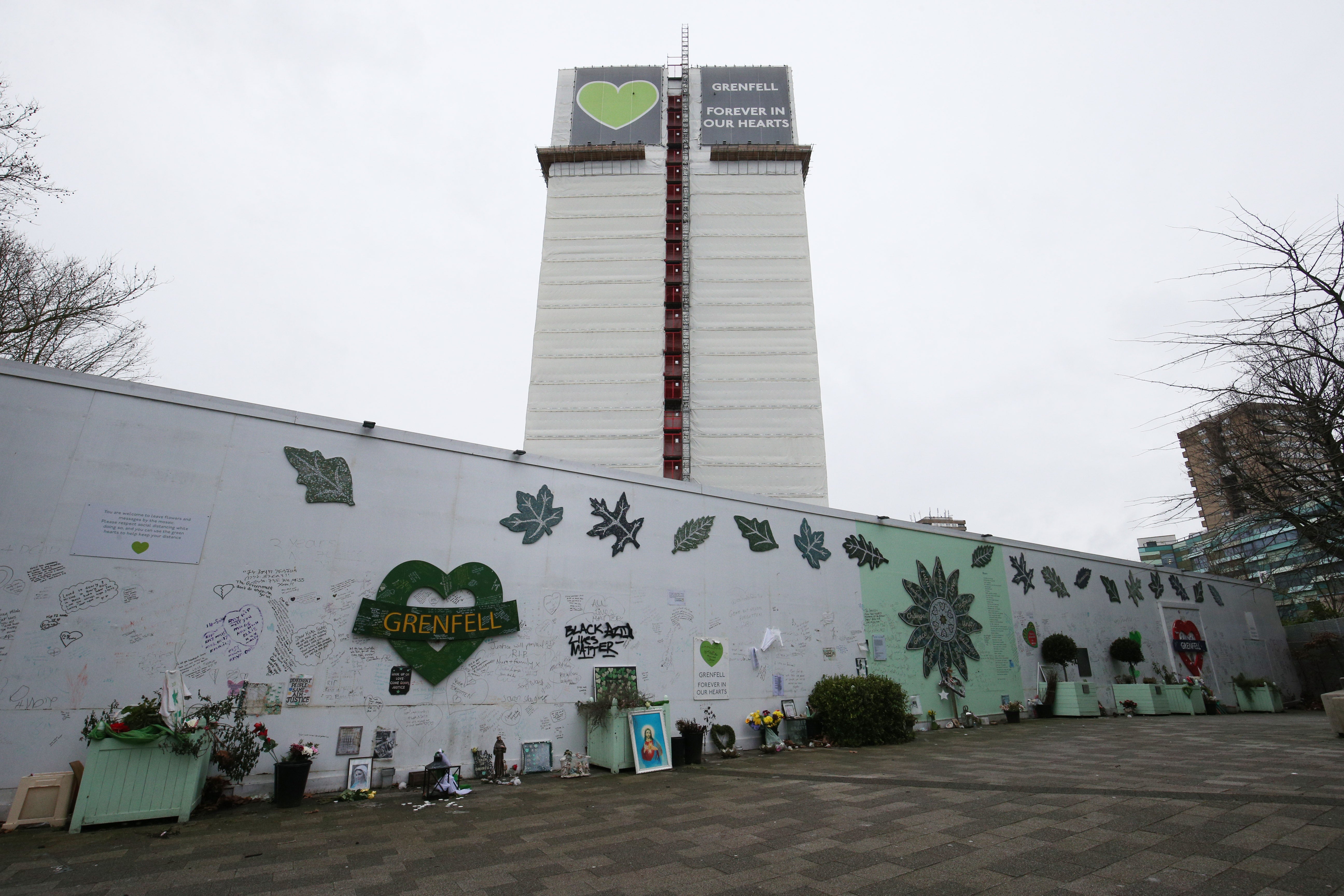Mayor of London chief of staff concerned about Grenfell response day after fire
David Bellamy was giving evidence to the Grenfell Tower Inquiry.

Your support helps us to tell the story
From reproductive rights to climate change to Big Tech, The Independent is on the ground when the story is developing. Whether it's investigating the financials of Elon Musk's pro-Trump PAC or producing our latest documentary, 'The A Word', which shines a light on the American women fighting for reproductive rights, we know how important it is to parse out the facts from the messaging.
At such a critical moment in US history, we need reporters on the ground. Your donation allows us to keep sending journalists to speak to both sides of the story.
The Independent is trusted by Americans across the entire political spectrum. And unlike many other quality news outlets, we choose not to lock Americans out of our reporting and analysis with paywalls. We believe quality journalism should be available to everyone, paid for by those who can afford it.
Your support makes all the difference.The Mayor of London’s chief of staff said he left a ministerial meeting the day after the Grenfell Tower fire feeling “unhappiness and concern” about the response to the blaze.
David Bellamy said he and colleagues believed at the time that the Royal Borough of Kensington and Chelsea (RBKC) council was “failing” and “something needed to be done” about it.
Sadiq Khan’s chief of staff was giving evidence to the Grenfell Tower Inquiry which is examining the circumstances leading up to and surrounding the fire which killed 72 people on June 14 2017.
Speaking about a ministerial meeting on the afternoon of June 15, Mr Bellamy said: “I just remember coming away with a real sense of unhappiness and concern about the response and that there was something that was really not right.”
Mr Bellamy was asked about what specifically concerned him during that meeting, and he said “response and recovery”, adding: “I don’t think it was really specifics.
“It was what came out of the meeting, and I’ve seen some of the evidence from other people who were at that meeting.
“It was also, as I returned to City Hall, before I could get to my desk I was met by colleagues who said ‘Look David, RBKC are really just, it’s failing, it’s just not working’, which I think they judged both from the mayor’s visit and also contact they had received from other probably political figures in that area of London who would have passed on the information.
“We weren’t really clear on precisely what the failings were, we could just see that things were really not working and something needed to be done about it.”
In his witness statement, in a section about that meeting, Mr Bellamy said: “A second ministerial meeting took place at 15.30 on Thursday June 15 2017.
“I attended on behalf of the mayor as the mayor was returning from Kensington.
“Following the meeting, I was sufficiently concerned at the lack of progress being made with the recovery operation that on my return to City Hall, I telephoned John Barradell, chief executive of the City of London Corporation and chair of the local authority panel (Lap) to inquire about the progress of the recovery operation from his standpoint and discuss what action could most helpfully be taken.”
Mr Bellamy said he was informed by Mr Barradell that he was currently on a separate call with RBKC who had informed him that it was planning to invoke mutual aid that evening.
“I was reassured by this.
“However this did not in fact take place until the following day,” Mr Bellamy said in his statement.
Mr Bellamy was asked if he had reflected on whether there was more he could have done to ensure that the response in the early days was well managed.
He replied: “I think in terms of the specific incident, the GLA as a partner didn’t receive the information about what was going on on the ground and the failings that there were in order for us as a partner to raise concerns and try to see that they were addressed.
“And that was for us the fundamental challenge is the lack of visibility into what was going on.”
Mr Bellamy said there is now a London situational awareness team which operates 24/7 and monitors information about what is going on in London.
Speaking at the end of his evidence, Mr Bellamy told the Inquiry: “I just want to take this opportunity publicly to say to the survivors, the bereaved, local residents, how very sorry I am for what happened.
“I consider that they were failed, not just here and there, but I think the evidence of this inquiry has shown that they were failed by us as a society.
“And I think it’s incumbent on all of us to do whatever we can to ensure that nothing like that ever happens again.
“I think I’ve outlined in evidence some of the things that we at the GLA have done since then, and it’s very important that we all do that, and everybody looks critically at that.
“I also want to, in that spirit, acknowledge those people who, when RBKC failed, came to help.
“They didn’t have to do so.
“The only reason that they did was a desire for public service, and I think that’s the spirit that all of us need to keep in our minds as we move forward and do all we can to ensure that nothing like this ever happens again.”